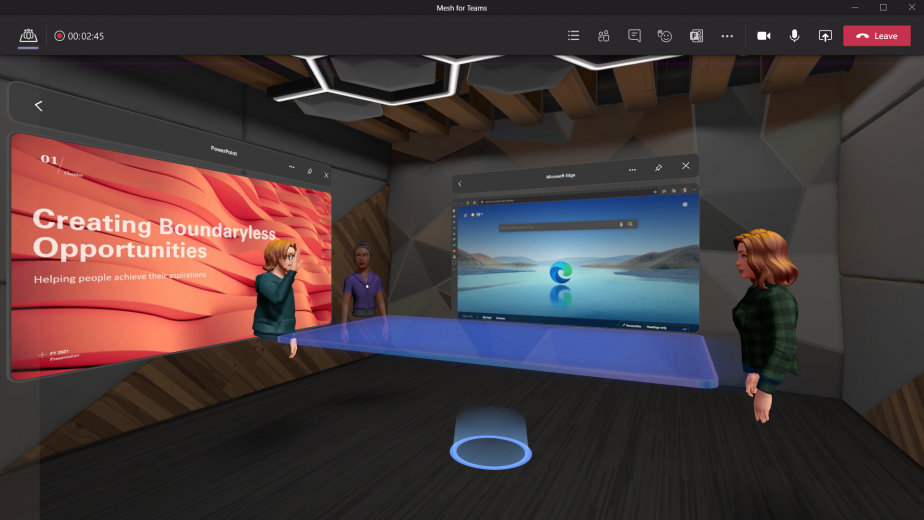By Zion Rufus
As it turns out, Facebook wasn’t the only big tech working heavily on the metaverse; Microsoft is taking a bigger leap at the Metaverse project by creating a more corporate version that can help people meet up in a digital environment, make meetings more comfortable with the use of avatars and facilitate creative collaboration from all around the world.
Where Facebook(now Meta) wants the Metaverse to be the next evolution of social connection where people can socialize, learn, collaborate and play in ways that go beyond human imagination, Microsoft sees it as “a persistent, digital world that is connected to many aspects of the physical world, including people, places and things.”
The race to the Metaverse has the big techs exploring options to create a collection of shared online worlds in which physical, augmented, and virtual reality converge. In its Metaverse efforts, Facebook invested $50 million, rebranded to Meta, and created 10,000 new jobs across the European Union to help make the building of the Metaverse a reality.
Meanwhile, Microsoft has similar but bigger plans. The tech company announced: “The Microsoft Cloud provides a comprehensive set of resources designed to power metaverses – there will be more than one! – IoT capabilities that enable customers to create “digital twins” of physical objects in the cloud; utilizing Microsoft Mesh to build a shared sense of presence on devices; and using AI-powered resources to create natural interactions through speech and vision machine learning models.”
“As we discuss the metaverse, we are thinking about both a new medium and an app type, like the way we talked about the web and websites a long, long time ago, aka the 1990s. At Ignite, we are making two important announcements that continue the evolution of the metaverse: Dynamics 365 Connected Spaces; and Mesh for Microsoft Teams.”
Earlier in May, Microsoft disclosed it was uniquely positioned with a stack of artificial intelligence and mixed reality tools to help companies start developing metaverse apps. A number of gaming companies, including Fortnite’s owner Epic Games, have also released simulation software and VR services for a metaverse.
To support its Metaverse project, Microsoft will roll out Mesh for Microsoft Teams in 2022. The feature combines the mixed-reality capabilities of Microsoft Mesh, which allows people in different physical locations to join collaborative and shared holographic experiences, with the productivity tools of Microsoft Teams, where people can join virtual meetings, send chats, collaborate on shared documents and more.
Mesh will allow organizations to create metaverses, persistent virtual worlds for people to collaborate, places that connect the physical world to the virtual world via digital twins of people, places and things.







Comment
No comments found.